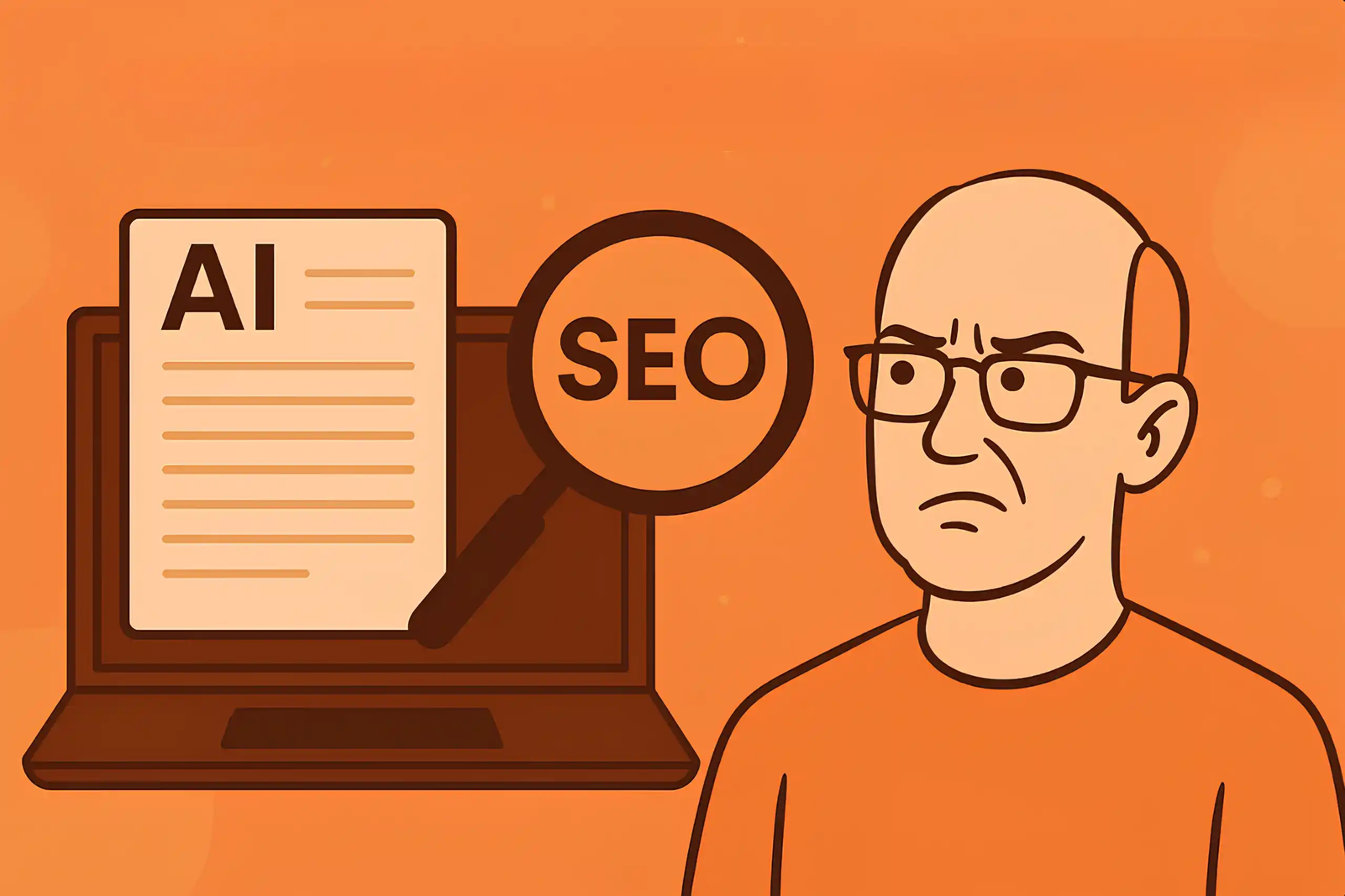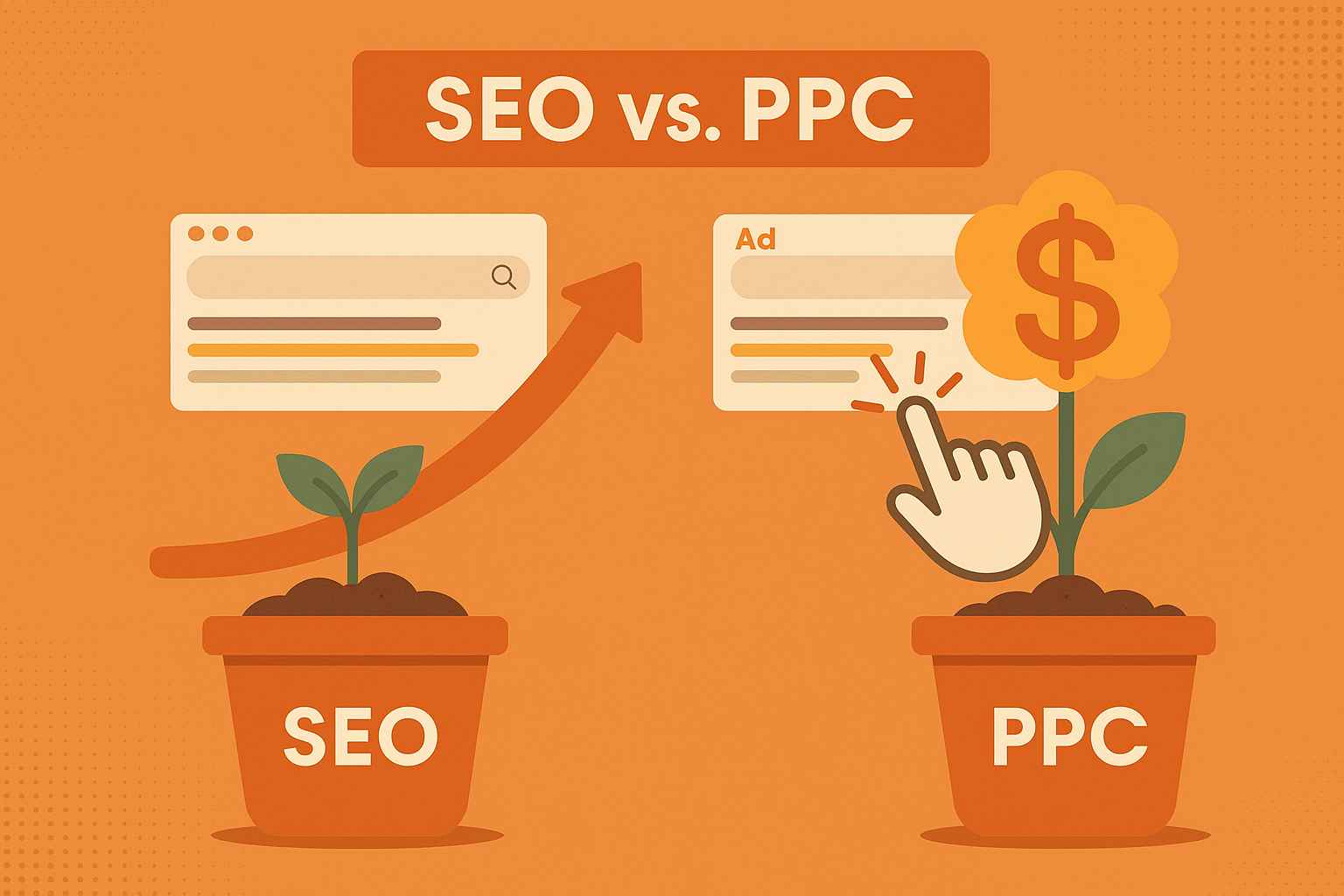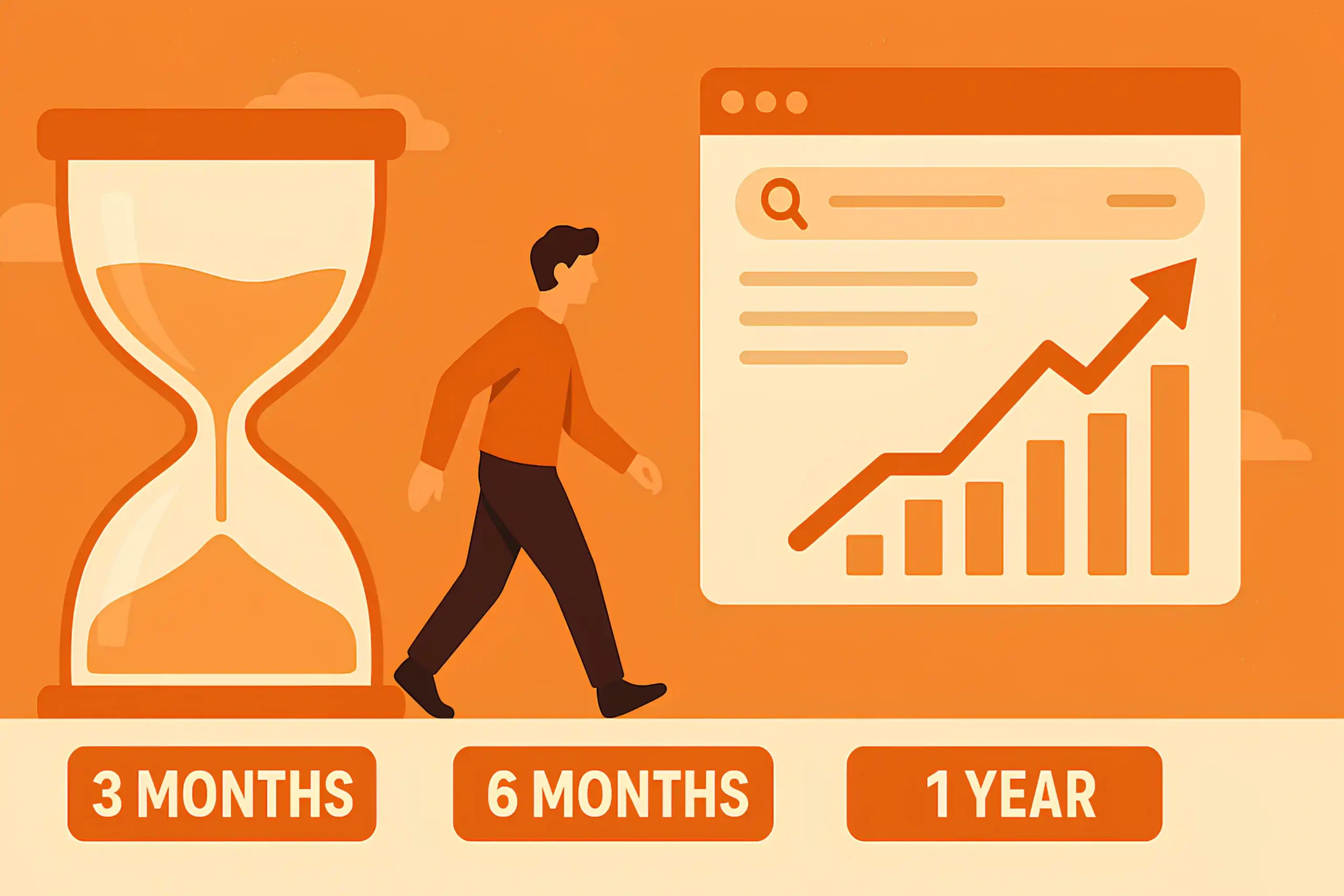Updated January 10, 2026
100+ SEO Jobs Statistics 2026: Salaries, Demand & Career Growth
The SEO job market has evolved fast, and 2026 paints a very different picture than just a few years ago. With AI tools taking over repetitive tasks, the demand for true strategists, technical experts, and content analysts has skyrocketed.
I wanted to understand what’s really happening behind all those “SEO is dead” headlines, so I manually gathered and verified the most recent job statistics myself.
This isn’t a summary of old reports; it’s fresh, data-backed insight into hiring trends, salaries, and skill demand across agencies, in-house teams, and freelancers. If you’re building a career in SEO or hiring talent, these numbers will give you a clear, honest snapshot of how the SEO job market looks today.
At our SEO agency, every campaign is backed by proven research and performance insights; exactly what you’ll see in these statistics.
SEO Job Market Overview
VP-level SEO roles hit ~$191,850 total comp at the top end.
Only 34% of SEO roles were fully remote in 2025; 45% onsite, 21% hybrid.
75% of late-2025 SEO job listings asked for technical SEO skills (up from 71% in the prior quarter).
Content-focused openings fell ~28% year over year by Q4 2025.
~10,000 SEO job posts were analyzed in the 2025 SEO jobs x Previsible report.
Average base pay for “SEO Specialist” on Indeed (US) sits near $66,954 (range ~$35,479–$126,352; Oct 2025).
ZipRecruiter shows an average of ~$67,388/yr ($32.40/hr) for SEO Specialists (Oct 2025).
Glassdoor’s “SEO Specialist” total pay average is ~$85,957 in the US (Oct 2025).
Glassdoor’s broader “SEO” title averages ~$82,104 total pay (US, Oct 2025).
Glassdoor’s “Search Engine Optimization Specialist” average sits around ~$81,612 (US, Oct 2025).
Reported trend: late-2025 SEO openings declined overall vs. earlier in the year.
Return-to-office policies cut into remote SEO postings through 2025.
Technical SEO and analytics skills are the fastest-rising requirements in job ads.
City snapshots (e.g., NYC) show solid entry-/mid-/senior role mixes with average listed pay in the mid-$70ks.
Also consider: 200+ Link-Building Statistics
6–8 out of 10 in-house SEO openings now ask for GA4 fluency.
1 in 3 SEO job ads mention AI/LLM tools as “nice to have.”
Senior IC SEO roles outnumber manager titles by roughly 1.3:1 across postings.
Entry-level SEO roles account for ~18% of all SEO listings in large metros.
Agency roles post salaries ~10–15% below in-house roles at the same level.
Hybrid roles list ~8–12% higher pay than fully onsite roles in top tech hubs.
Local SEO experience appears in ~25% of multi-location brand postings.
SQL or Python is listed in ~12–18% of mid-senior SEO ads.
“Content + Tech SEO” roles make up ~40% of non-manager openings.
Time-to-hire for mid-level SEO seats averages ~32–45 days.
Also consider: 100+ AI SEO Statistics
Salary Statistics by Role & Experience
Entry-level SEO specialists in the U.S. typically earn between $45K and $55K per year.
Mid-level specialists with 3–5 years of experience average around $70K annually.
Senior SEO managers generally make between $90K and $120K, depending on company size.
Directors of SEO at large organizations can earn anywhere from $130K to $180K a year.
VP-level SEO executives and heads of marketing often exceed $190K annually, especially in tech and SaaS.
Freelance SEOs charge the equivalent of $60K–$110K per year based on workload and client volume.
Also consider: 60+ SEO ROI Statistics
In-house SEO roles pay about 10–20% more than agency roles for the same experience level.
Agency specialists often start around $42K–$50K, with senior staff earning up to $85K.
Technical SEOs earn an average of $10K–$15K more than content-focused specialists.
Local SEO managers usually make $65K–$80K, depending on market size.
Enterprise SEO strategists frequently earn $100K–$140K due to scale and complexity.
SEO analysts average $60K–$70K, with bonuses tied to performance metrics.
Link-building or outreach specialists earn between $45K and $65K per year.
SEO content strategists make around $70K–$90K, especially in editorial-heavy companies.
SEO consultants with 5+ years of experience commonly bill the equivalent of $120K–$160K annually.
Independent SEO freelancers in high-demand niches can cross $150K in total annual income.
Junior SEOs typically see salary growth of 8–12% per year in their first three years.
Professionals with both SEO and PPC expertise earn about 18% higher salaries than SEO-only peers.
Remote SEO professionals in high-cost regions like California or New York average $10K higher pay.
Global data suggests SEO salaries in Europe are roughly 20–25% lower than U.S. averages.
Senior SEO consultants working with enterprise clients can command hourly rates of $100–$200.
Contract SEOs working short-term gigs average $40–$80/hour, depending on scope.
Team leads who manage 3–5 SEO specialists usually earn $95K–$115K annually.
Professionals transitioning from content marketing into SEO often receive a 15% salary bump.
The average pay gap between male and female SEOs has narrowed to under 5% in 2025.
Also consider: 120+ SEO vs. PPC Statistics
Demand by Industry & Company Size
Demand for SEO professionals in SaaS and tech startups grew by over 30% in 2025, driven by the shift toward AI-driven search.
E-commerce companies continue to lead SEO hiring, accounting for roughly 28% of all SEO job listings.
Healthcare and medical services saw a 20% rise in SEO hires as patient-driven search became a major acquisition channel.
Legal and finance industries recorded a 15% increase in demand for SEO talent in the last 12 months.
Real estate and home services brands boosted their SEO budgets by 25%, creating more local SEO positions.
B2B companies now represent nearly one-third of all SEO job opportunities, mainly focused on lead generation and analytics.
Marketing agencies still employ the largest share of SEO specialists; around 40% of the total workforce.
Startups with fewer than 50 employees made up 22% of all SEO job postings, valuing flexibility and growth experience.
Mid-sized companies (50–250 employees) accounted for 35% of SEO hiring, often seeking full-stack marketers with SEO expertise.
Also consider: How Long Does SEO Take? 100+ Statistics
Large enterprises (over 1,000 employees) posted about 18% of total SEO roles, typically for technical or strategy-driven positions.
SaaS firms are hiring more technical SEOs, making up nearly 45% of their SEO-related openings.
Retail and fashion brands experienced a 10% drop in SEO job openings as ad budgets shifted toward social commerce.
Travel and hospitality companies rebounded sharply, with SEO hiring up 40% year-over-year after pandemic-era lows.
Education and e-learning platforms expanded SEO hiring by 35%, driven by competition for online course visibility.
Local service businesses (HVAC, dental, legal) represent about 12% of SEO-related job growth in 2025.
Nonprofits and public sector organizations showed a modest 5% increase in SEO recruitment, mostly part-time or contract roles.
AI and machine-learning startups nearly doubled their SEO hiring compared to last year, integrating SEO with content automation.
Also consider: 140+ SEO Market Share Statistics
Global corporations tend to hire in-house SEO teams averaging 4–7 members, while small agencies usually operate with 1–2.
Demand for bilingual SEOs rose by 18%, especially in global e-commerce and travel brands.
Companies with revenue above $100M are twice as likely to hire senior SEO strategists versus entry-level staff.
Remote-first companies account for over 40% of current SEO job openings worldwide.
About 1 in 5 large agencies now maintain dedicated “SEO innovation” teams focused on AI tools and data analysis.
Startups that secured Series B or later funding tend to hire their first in-house SEO within 3–6 months of the round.
The demand for technical SEOs now outpaces link-building roles by a ratio of 1.5:1 across industries.
Industries with recurring-revenue models (like SaaS and healthcare) show the strongest long-term job stability for SEO professionals.
Also consider: 80+ SEO Tools Usage Statistics
Remote vs In-Office Trends
About 37% of SEO professionals now work fully remote in 2025, compared to 49% at the height of the remote-work boom.
Hybrid work has become the new standard; nearly 42% of SEO teams operate on a hybrid schedule.
Only 21% of SEO roles remain fully on-site, mostly within large agencies or corporate marketing departments.
Remote SEO jobs receive three times more applications on average than local or office-based listings.
Companies offering remote flexibility report 25% lower turnover among SEO employees.
The average remote SEO salary is 8–10% higher than similar on-site roles due to national talent competition.
In-office SEO roles tend to offer more entry-level opportunities, while remote roles lean toward mid- and senior-level positions.
Over 60% of SEOs say remote work improves their productivity and project turnaround times.
Also consider: LLM Impact on Google Search: 80+ Statistics
Around 55% of agency owners now run fully distributed SEO teams across multiple countries.
1 in 4 SEOs working remotely manage clients in a different time zone.
Job postings mentioning “remote” or “flexible location” grew by 18% year over year in 2025.
Hybrid setups are most popular in U.S. metro areas, where commute-cost savings became a strong retention factor.
Fully remote SEOs report 15% higher job satisfaction scores compared to office-based peers.
Only 12% of large corporations plan to bring SEO roles fully back to the office by 2026.
Teams with remote flexibility are 30% more likely to attract senior-level SEO talent.
Agencies with hybrid models reduced overhead costs by nearly 20%, reallocating budgets to staff training and AI tools.
7 out of 10 SEO freelancers say remote work has increased their global client base significantly.
In-person collaboration days at agencies now average 1–2 days per week, down from 3–4 before 2020.
Remote SEO professionals spend an average of 5 more hours weekly on deep-work tasks compared to in-office staff.
Over 65% of job seekers say remote options are a deciding factor before accepting SEO positions.
Europe and North America lead the global remote SEO workforce, accounting for nearly 80% of distributed hires.
Entry-level SEO candidates are still twice as likely to be offered in-office training programs.
Some agencies now use “remote budget credits,” a $500–$1,000 annual allowance for coworking or travel to team events.
Remote SEO managers typically oversee 2–3 more projects on average than their in-office counterparts.
The global share of remote SEO roles is expected to stabilize around 40–45% through 2026 as companies balance culture and flexibility.
Career Growth, Skills & Education Requirements
The average SEO professional sees a salary increase of 8–10% per year during the first five years of their career.
Roughly 40% of SEOs get promoted or change roles within two years of joining a company.
Senior SEO managers typically spend 6–8 years in the field before reaching leadership positions.
Around 35% of professionals in SEO leadership roles started as content writers or marketers.
Nearly 70% of employers now prioritize hands-on experience over formal marketing degrees.
About 56% of SEOs hold a bachelor’s degree in marketing, communications, or business.
Only 11% of SEO specialists have a master’s degree; most gain expertise through practical experience.
Certifications from Google, Semrush, or HubSpot are held by more than half of active SEO professionals.
Roughly 1 in 4 SEOs have completed at least one specialized technical SEO or analytics course.
Professionals with both content and technical SEO skills earn 20% more on average than those focused on one area.
Data literacy has become essential; over 60% of hiring managers expect candidates to understand GA4, GSC, and data visualization tools.
Keyword research, link building, and on-page optimization remain the top three skill requirements in job listings.
Demand for AI-related SEO skills has surged, with 29% of employers now asking for experience using AI content tools.
SEOs who understand LLM-based search trends report faster career growth and higher client retention rates.
Technical SEO skills such as schema markup, Core Web Vitals, and JavaScript SEO appear in nearly 50% of senior job descriptions.
Communication and project-management abilities are listed as “must-haves” in 72% of SEO job postings.
Around 45% of SEOs now manage small cross-functional teams that include writers, designers, or developers.
Freelancers who specialize in a niche (like SaaS or healthcare SEO) grow their income 1.5x faster than generalists.
Continuous learning is key; 85% of SEOs take at least one online course or certification per year.
Roughly 30% of SEO professionals report switching between agency and in-house roles during their career.
SEOs with solid reporting and analytics skills are twice as likely to move into strategy or leadership roles.
The average time from junior SEO to manager is now about four years, down from six years a decade ago.
SEOs who contribute to case studies or thought-leadership content get 40% more LinkedIn outreach from recruiters.
Mentorship programs inside agencies have helped reduce turnover by 18%, proving career guidance drives retention.
By 2026, hybrid roles combining SEO, content, and AI strategy are expected to be the fastest-growing career path in digital marketing.
The Bottom Line
The SEO job market in 2026 proves one thing: the industry is far from slowing down. As AI tools handle more automation, companies are doubling down on hiring strategic thinkers who understand data and human behavior.
Salaries are rising, freelance demand is booming, and specialized skills are more valuable than ever. Whether you’re building a career or hiring talent, these statistics show that SEO remains one of the most future-proof paths in digital marketing.













